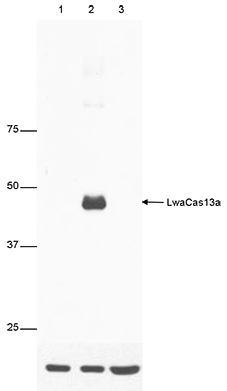CRISPR systems are adaptable immune mechanisms which are present in many bacteria to protect themselves from foreign nucleic acids, such as viruses, transposable elements or plasmids. The CRISPR/Cas9 (CRISPRassociated protein 9 nuclease) system from S. pyogenes was the first to be adapted for inducing sequencespecific double stranded breaks and targeted genome editing. This system is unique and flexible due to its dependence on RNA as the moiety that targets the nuclease to a desired DNA sequence and can be used to induce indel mutations, specific sequence replacements or insertions and large deletions or genomic rearrangements at any desired location in the genome. In addition, Cas9 can also be used to mediate upregulation of specific endogenous genes or to alter histone modifications or DNA methylation. Recently, a socalled class 2 type VI CRISPR system has been identified which is characterized by the presence of the single effector protein. Cas13a is one of the proteins belonging to the class 2 type VI system identified so far. These proteins lack homology to other DNA nuclease domains but contain two Higher Eukaryotes and Prokaryotes Nucleotide-binding (HEPN) domains and are thought to function solely as an RNA-guided RNA-targeting CRISPR effector.



